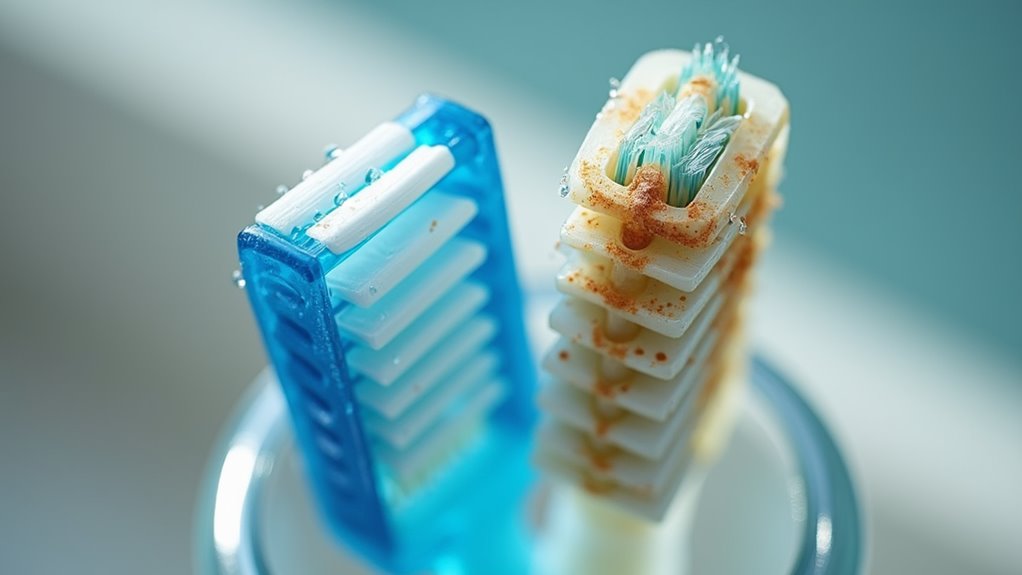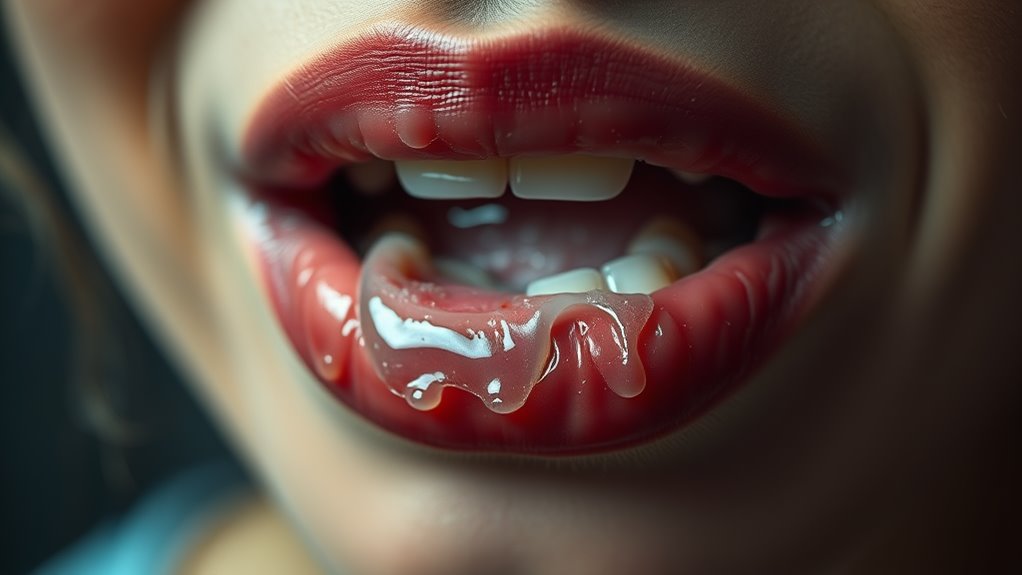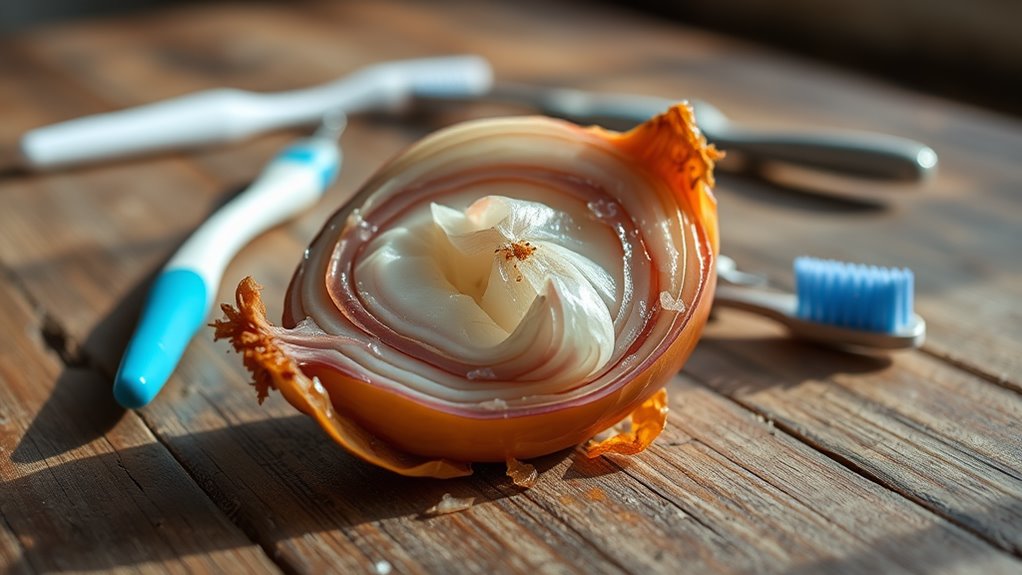Why You Should NEVER Share Your Toothbrush – Even With Family!
You’ve probably never given much thought to sharing your toothbrush with a family member in a pinch. After all, you share meals, living spaces, and even genetics – so what’s the harm? But beneath those bristles lurks a hidden world of bacteria and potential health risks that could make you think twice. What you don’t know about your toothbrush’s microbiome might surprise you, and the consequences of sharing could be more serious than you imagine.
The Hidden Dangers of Bacteria on Your Toothbrush
While you might think your toothbrush is clean after rinsing it, microscopic bacteria thrive in those moist bristles. Your mouth harbors over 700 species of bacteria, and they’re all getting transferred to your toothbrush every time you brush.
Even after rinsing, these microorganisms continue multiplying in the damp environment.
The dangers of toothbrush sharing extend far beyond the “ick factor.” When you use someone else’s toothbrush, you’re exposing yourself to their unique bacterial ecosystem, including potential pathogens that cause gum disease, strep throat, and even bloodborne viruses.
Your immune system isn’t prepared for this sudden invasion of foreign microorganisms.
What’s more concerning is that bacteria can survive on toothbrush bristles for weeks. They form protective biofilms that make them resistant to simple rinsing.
Even family members who appear healthy might unknowingly harbor harmful bacteria, making toothbrush sharing a significant health risk you’ll want to avoid. Additionally, poor oral hygiene can lead to systemic diseases such as heart disease and diabetes, further emphasizing the importance of keeping your toothbrush to yourself.
Serious Health Risks of Sharing Oral Care Tools
Although most people understand the importance of not sharing toothbrushes, many don’t realize that sharing any oral care tools can lead to serious infections and diseases.
When you share dental items, you’re exposing yourself to blood-borne pathogens, harmful bacteria, and viruses that can survive on these surfaces for days.
You’re putting yourself at risk for hepatitis B, herpes simplex, and other serious conditions by sharing dental tools. Even microscopic bleeding from your gums can transfer these pathogens between users. The risk increases significantly if either person has a compromised immune system or existing oral health issues.
Beyond toothbrushes, avoid sharing water flossers, interdental brushes, or tongue scrapers. These tools can harbor dangerous microorganisms in their bristles, crevices, and hard-to-clean areas. Additionally, sharing oral care tools can exacerbate issues like bad breath, as bacteria can transfer between users and disrupt the natural oral balance.
Instead, invest in separate oral care tools for each family member and replace them regularly to maintain optimal oral health and prevent cross-contamination.
Why Family Members Aren’t Exception to the Rule
Many people assume sharing toothbrushes with family members is safe because they live together and share meals. However, every person’s mouth harbors unique bacteria and viruses that can be harmful to others, regardless of familial ties.
| Family Member | Unique Oral Conditions | Risk Factors |
|---|---|---|
| Children | Baby teeth/cavities | Developing immune system |
| Teenagers | Braces/aligners | Hormonal changes |
| Adults | Gum disease/crowns | Medications |
| Elderly | Dentures/bridges | Weakened immunity |
| Pregnant Women | Gingivitis | Hormonal shifts |
Even though you share DNA with family members, their oral microbiome differs significantly from yours. Blood-borne diseases, hepatitis B, and other infections can transfer through microscopic bleeding during brushing. Your immune system might react differently to bacteria from relatives’ mouths, potentially leading to infections or illness. Instead, maintain separate, clearly marked toothbrushes for each family member and replace them every three months. Additionally, sharing a toothbrush can exacerbate poor oral hygiene since it allows harmful bacteria to spread between individuals.
Best Practices for Household Toothbrush Storage and Care
Since proper toothbrush storage directly impacts oral health, it’s essential to establish good habits that prevent bacterial growth and cross-contamination.
Store your toothbrush upright in an open container that allows air circulation, keeping it at least four inches away from other brushes to prevent cross-contamination. Never cover the bristles with a cap or case during regular storage, as enclosed spaces create a moist environment where bacteria thrive.
After brushing, rinse your toothbrush thoroughly with tap water and shake off excess moisture. Position it vertically to ensure proper drainage and faster drying.
Keep your brush away from the toilet area, as flushing can spread airborne bacteria up to six feet. Consider using a UV sanitizer for deep cleaning, but don’t rely on it as a substitute for proper storage practices. Worn-out bristles can also harbor bacteria and lead to additional oral health issues if not addressed.
Replace your toothbrush every three months or sooner if the bristles become frayed or you’ve been sick.




